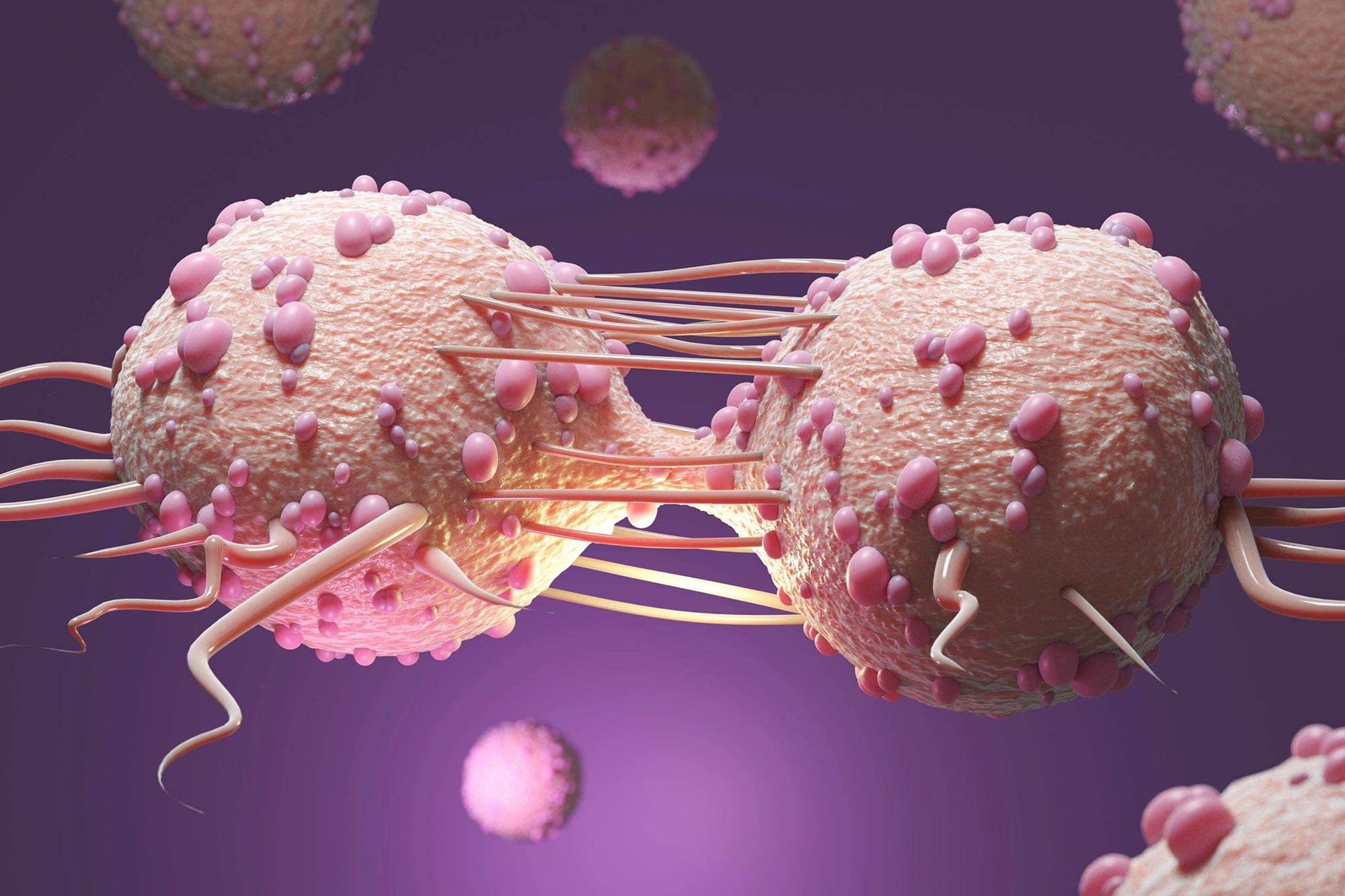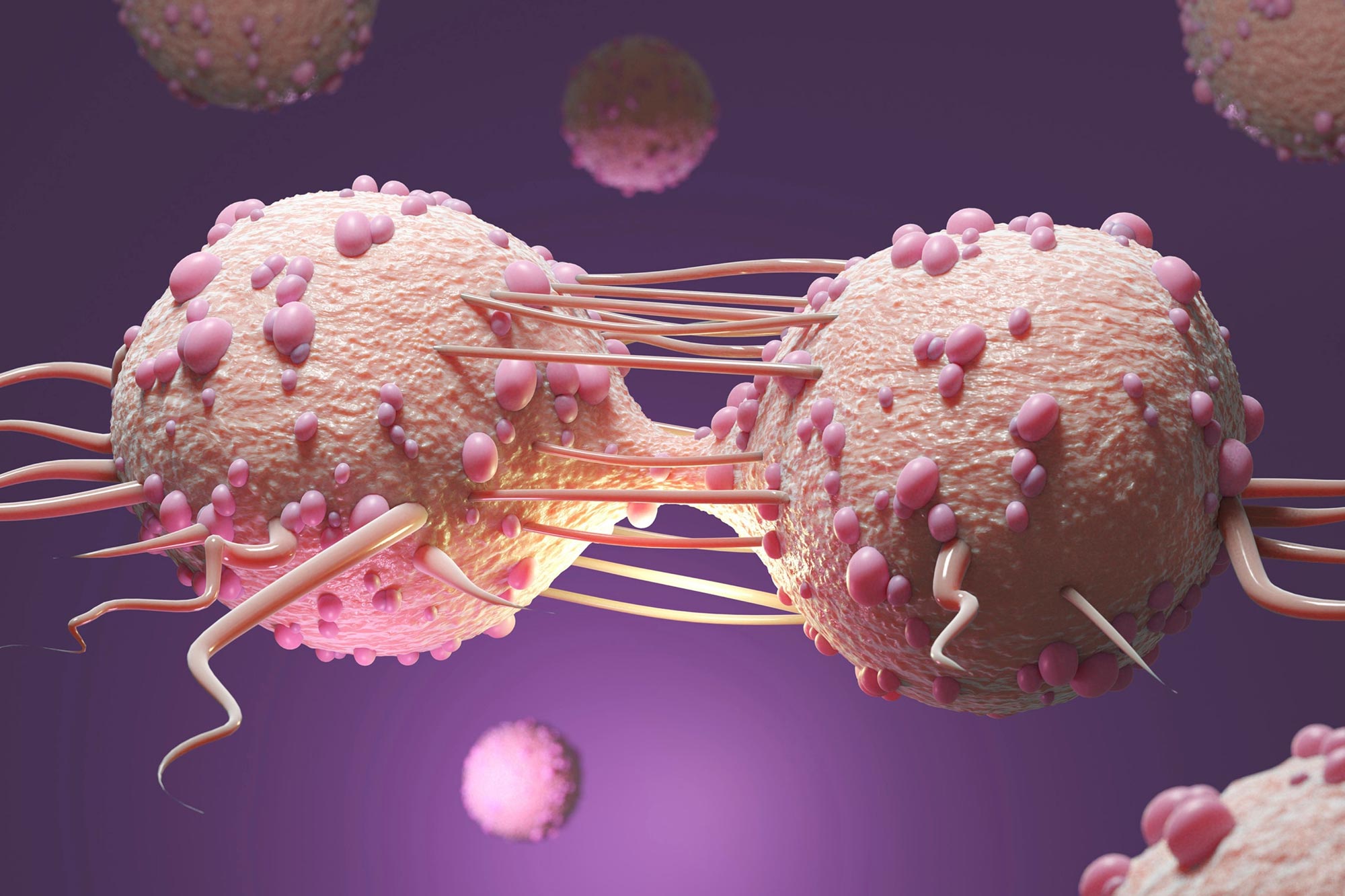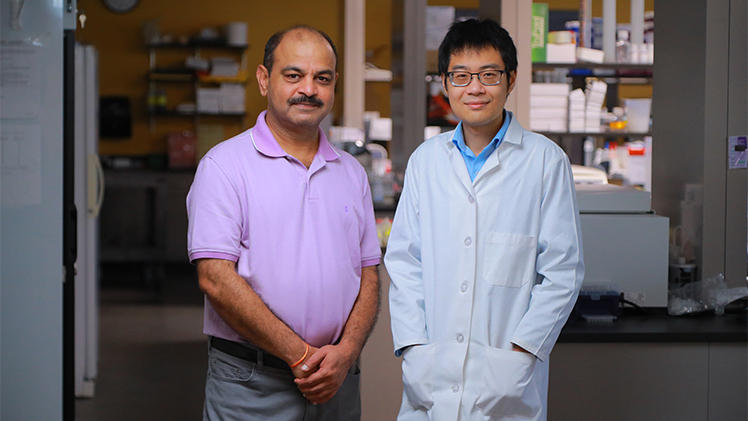
The results highlight both the need for routine blood bile acid level testing as well as caution when individuals with high bile acid levels consume fiber.
The study found that men who had high fiber intake and high blood bile acid levels had a 40% higher risk of liver cancer.
Fiber-enriched foods are often consumed by many individuals to promote weight loss and fend against chronic diseases like cancer and diabetes.
Consuming highly refined fiber, however, may raise the risk of liver cancer in certain people, especially those with a silent vascular deformity, according to a recent study from The University of Toledo.
The finding, which is described in a report published in the journal Gastroenterology, adds to UToledo’s expanding body of knowledge about the undervalued role that our gut plays in the origin of disease.
“We have worked for a long time on this idea that all diseases start from the gut,” said Dr. Matam Vijay-Kumar, a professor in the Department of Physiology and Pharmacology in the College of Medicine and Life Sciences and the paper’s senior author. “This study is a notable advancement of that concept. It also provides clues that may help identify individuals at a higher risk for liver cancer and potentially enable us to lower that risk with simple dietary modifications.”
From left, Dr. Matam Vijay-Kumar, a professor in the Department of Physiology and Pharmacology, and Dr. Beng San Yeoh, a postdoctoral fellow. Credit: University of Toledo
Expanding Research
Vijay-Kumar’s team published a major paper in the journal Cell in 2018 that revealed a large proportion of mice with immune system defects developed liver cancer after being given an inulin-fortified diet.
Inulin is a refined, plant-based fermentable fiber that is sold in supermarkets as a health-promoting prebiotic. Additionally, it is often found in processed foods.
Vijay-Kumar and colleagues found that around one in ten regular, otherwise healthy lab mice got liver cancer after consuming the inulin-containing diet, despite the fact that inulin promotes metabolic health in the majority of those who consume it.
“That was very surprising, given how rarely liver cancer is observed in mice,” said Vijay-Kumar, who is also director of the UToledo Microbiome Consortium. “The findings raised real questions about the potential risks of certain refined fibers, but only now do we understand why the mice were developing such aggressive cancer.”
The new study offers a clear explanation — and may have implications that go beyond laboratory animals.
A Missing Link
As the team furthered its investigation, the researchers discovered all mice that developed malignant tumors had high concentrations of bile acids in their blood caused by a previously unnoticed congenital defect called a portosystemic shunt.
Normally, blood leaving the intestines goes into the liver where it is filtered before returning to the rest of the body. When a portosystemic shunt is present, blood from the gut is detoured away from the liver and back into the body’s general blood supply.
The vascular defect also allows the liver to continuously synthesize bile acids. Those bile acids eventually spill over and enter circulation instead of going into the gut.
Blood that’s diverted away from the liver contains high levels of microbial products that can stimulate the immune system and cause inflammation.
To check that inflammation, which can be damaging to the liver, the mice react by developing a compensatory anti-inflammatory response that dampens the immune response and reduces their ability to detect and kill cancer cells.
While all mice with excess bile acids in their blood were predisposed to liver injury, only those fed inulin progressed to hepatocellular carcinoma, a deadly primary liver cancer.
Remarkably, 100% of the mice with high bile acids in their blood went on to develop cancer when fed inulin. None of the mice with low bile acids developed cancer when fed the same diet.
“Dietary inulin is good in subduing inflammation, but it can be subverted into causing immunosuppression, which is not good for the liver,” said Dr. Beng San Yeoh, a postdoctoral fellow and the new paper’s first author.
Dr. Bina Joe, Distinguished University Professor and chair of the Department of Physiology and Pharmacology, and a co-author of the study said the high-impact publication demonstrates the pioneering research being done at UToledo.
“The role of the gut and gut bacteria in health and disease is an exciting and important area of research, and our team is providing new insights on the leading edge of this field,” she said.
Implications
Beyond the laboratory, UToledo’s research could provide insight that might help clinicians identify people who are at higher risk of liver cancer years in advance of any tumors forming.
Portosystemic shunts in humans are relatively rare — the documented incidence is only one in 30,000 people at birth. However, given that they generally cause no noticeable symptoms, the true incidence may be many times greater. Portosystemic shunting also commonly develops following liver cirrhosis.
Theorizing that high bile DOI: 10.1053/j.gastro.2022.08.033
“Dysregulated Microbial Fermentation of Soluble Fiber Induces Cholestatic Liver Cancer” by Vishal Singh, Beng San Yeoh, Benoit Chassaing, Xia Xiao, Piu Saha, Rodrigo Aguilera Olvera, John D. Lapek Jr., Limin Zhang, Wei-Bei Wang, Sijie Hao, Michael D. Flythe, David J. Gonzalez, Patrice D. Cani, Jose R. Conejo-Garcia, Na Xiong, Mary J. Kennett, Bina Joe, Andrew D. Patterson, Andrew T. Gewirtz and Matam Vijay-Kumar, 18 October 2018, Cell.
DOI: 10.1016/j.cell.2018.09.004











